Kris Comerford joined Asda as chief commercial officer a year ago, having spent the previous 17 at Tesco, most recently as UK commercial director for packaged foods.
As this week’s guest editor, he took the chance to talk about the big changes underway at Asda and the challenges faced by the wider industry.
What is it like working for Mohsin Issa?
I sit opposite him, so he’s always contactable. He doesn’t like the limelight, but he’s very perceptive, perceptive of people. And his business judgement is like nothing I’ve ever seen before.
He loves to get stuck into the detail of what we’re doing on the trading side of things, as well as building the wider business ecosystem.
We’ve just set out the Asda values and inevitably there are some elements of entrepreneurism and Mohsin in them. There’s one about having the customer at heart. The second is love what you sell. The third is colleagues: we’re one team. And then you have the two most enabling ones: ‘dare to try’ and ‘we don’t wait to make good stuff happen’. That’s where Mohsin is. I find it quite empowering.
“Once a decision is made, it’s ‘let’s go after it’”
Kris Comerford, Asda CCO
How does it compare with your 17 years at Tesco?
It’s pretty different. I loved it at Tesco. All I would say is, I think where Asda is going, and its ambition to be more of a democratiser and disrupting things and doing things differently, has been brilliant.
Clearly there was a gap in the ecosystem and the portfolio, which is convenience stores. Going from three – which is what we had with Asda Express – to the acquisition of Co-op and now the EG acquisition shows a move pretty quickly to develop that.
Once a decision is made, it’s ‘let’s go after it’.
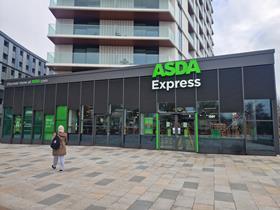
Does Asda’s debt matter operationally? The business is cash generative. It’s a very strong, shored-up business, so day-to-day, operationally, for me and my teams, absolutely not. We know what we’ve got to do. We want to grow the top line fast and take efficiencies and synergies when they’re there.
Is convenience the priority therefore?
I think an Achilles heel of Asda – and I’ve competed against Asda for nearly 20 years – has always been around perception of food quality. And often with perception there is an element of truth. We’re focusing on food-to-go ranges and meals. There will be a relaunch in a few weeks’ time at front of store, and in our sandwiches, because that’s going to be critical in the convenience store estate. Towards autumn I’m going to do ready meals and our meal solutions as well.
The acquisition also just gives us more of a footprint, and therefore you can bring more of what Asda’s famous for, in terms of value, to more people. That’s the vision that was sold to me when I made the switch 18 months ago. That’s what I’m here to deliver.
What else is on your to-do list?
Ultimately, customers will decide where they shop and there are challenges we need to address. As well as food quality, there is some of our store standards. We need to make things easier for our store colleagues, so they can deal with the most important thing, which is serving customers more often.
We make it hard for them sometimes, with landing things correctly, making too many price changes. Availability, as a total sector, hasn’t been brilliant. That probably still hasn’t recovered to pre-pandemic levels.
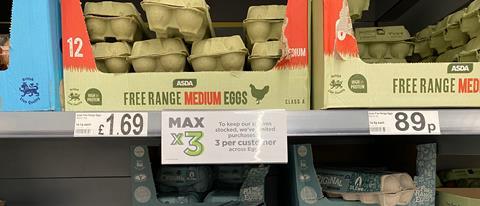
What is continuing to hold availability back?
It changes depending on some of the suppliers. It went through a phase with some of the cost price challenges. We’re starting to see better availability at the shelf-edge now. We’ve been holding a bit more stock to mitigate that.
But we’ve still got some ongoing shortages, in eggs, some of the produce – we had salad shortages at the start of the year. And there is still the odd bit within manufacturing.
Have supermarkets exacerbated egg shortages through the prices they pay?
I think there clearly had been a structural challenge in eggs in the past. But if you looked at wider availability, when you’re going through unprecedented levels of cost price pressures, there’s clearly a debate with the suppliers about which ones are justified, to what extent, and how often. And sometimes that can lead to shortages. It’s abating now, as some of the inflationary cost pressures ease.
How regular are conversations with suppliers about price now?
Versus 18 months ago, a bit less. It’s helpful because then you can talk about how you want to build businesses together, create value, innovate for customers, do things differently, as opposed to having an attritional conversation.

How will Asda encourage deflation while being fair to suppliers?
My stance is to be open in terms of the business plan, what Asda’s trying to achieve, the opportunity.
If there are opportunities to innovate, create more theatre in stores, use our Asda Rewards app to get their messaging out, or be a bit more targeted and personalised, then why wouldn’t you do that?
The suppliers will then make a choice of where they want to invest, who they want to grow with. That’s the grocery retail sector, in a nutshell.
You always need some tension and that’s fine, because they’re going to make some choices and we’ll make choices. You can’t win with everybody. You’ve just got to be honest and open and clear.
How soon do you hope to see more deflation reaching shelves?
From our early indications, there’s enough view of where commodities are to show an easing of some of the input costs. We’ve started to see it, albeit slowly, in this week’s Kantar figures. And when we’ve seen commodity deflation, we’ve passed that on, as has my competitive set. We’ve seen that recently in dairy, for example.
It’s hard to tell exactly how long it will take for more of that to come all the way through, but as we exit this year, we’ve got to hope food inflation will have started to reduce significantly.
Are you worried about the growth of the discounters?
It goes back to the Mohsin point from the start. One of his mantras is he never fears – and he never wants us to fear – competition or criticism. I quite like that. It works for me. There is always competition in the sector. You have to understand what your competitors are doing and see that as a way to drive you forward.
On the criticism point: whether you like it or not, it’s other people’s opinions, it is an opinion, you have to face into it. Don’t get defensive about it. Try and be better and try and learn from it. So I’m actually comfortable with both. We’re building our ecosystem, broadening ourselves. Hence the convenience stores, foodservice, petrol stations, online, large stores. Actually, that’s now a credible and pretty filled ecosystem.
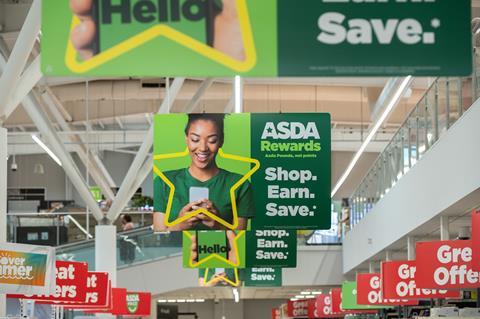
With five million customers signed up to the Asda Rewards app in its first year, what are the rewards for Asda?
Our most loyal customers are already using it andit’s working well. It’s already become the third most liked loyalty app. I think that’s impressive already after 10 months.
With 42% participation it’s pretty pacy. I thought I was impatient till I met Mohsin, but even he thinks that’s fast. We’re ahead of Costa and ahead of Boots. But to grow it further we need to interact more with customers.
People have lots of apps on their phones – so there are lots of questions to ask like how do we keep it relevant to them? How do they all work? How do they add to your life. And similarly, how do you keep using it? That’s going to be quite key. How do we make the offers more personal more relevant to customers, and optimise it in that way?
“People have lots of apps on their phones – so there are lots of questions to ask like how do we keep it relevant to them?”
I think the beauty of it has been that it’s cash [rewards]. You can all work through a cash versus a points-based system. I think it’s digital versus a card, which is not necessarily brilliant for everybody. Ultimately, that’s where we see the market going to. But it’s been good so far and long may it continue.

We have 17 million transactions a week, so there is a lot of scope. The customer data is going to be brilliant in helping inform category management and how we think about the customer. We’ve got a lot of catching up to do, but we’ve started the journey.
Will we see Rewards Prices?
Our premise at the moment is: how do you get more engagement on it? How do we interact with them? People have lots of apps on their phones – how do we keep it relevant to them? And then what else could it become in the total ecosystem? [Rewards Prices] could be a way, absolutely.
What else are you doing with the range?
It’s grown by 1,000 SKUs this year, by delisting 2,000 and adding 3,000.
A couple of years ago, there was a simplification exercise. It was right at the time, because with each line you add in it clearly has a distribution cost impact, it clearly has a ranging cost impact. But it did excessively cut back some of the Asda range, so we’ve been redressing that.
When you look at the customer data, there are definitely some customer needs that have been missing from the portfolio. With a more data-led approach, where you can be a bit more sophisticated in terms of ethnicity, demographic, affluence, why wouldn’t you?



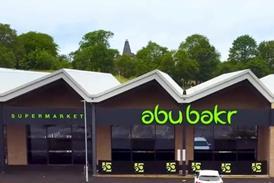




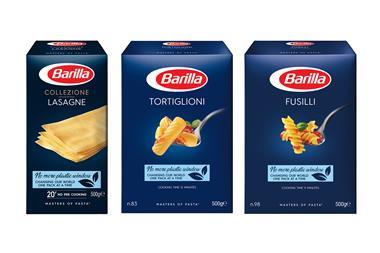
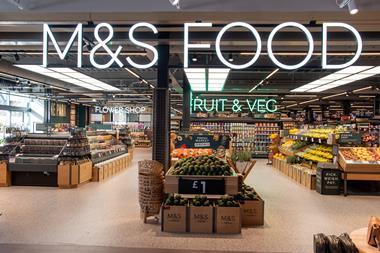



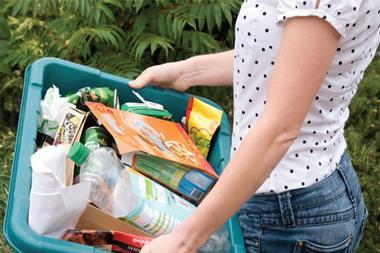






No comments yet